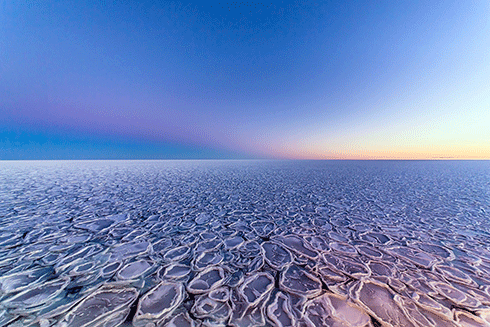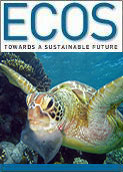
|
Published: 19 August 2013
Antarctica’s more acid seas point to human CO2 fingerprint
A unique comparison of coastal water monitoring near Australia’s Davis Station in East Antarctica has shown significant changes in ocean chemistry over the past 16 years.

|
|
Pancake ice forming off the Antarctic coast: ocean acidification is increasing at a rate that is not explained by natural variability. Credit: Stefan Hendricks, Alfred-Wegener-Institut
|
The study, published in the Journal of Marine Chemistry, shows a marked and somewhat unexpected increase in the acidity of seawater in the region.
The study reveals that the ocean’s natural variability in pH has exacerbated the change observed. However part of the change is consistent with that expected from increased carbon emissions resulting from human activities.
Lead author, Nick Roden – a PhD student at the University of Tasmania whose work is being supervised by CSIRO’s Dr Bronte Tilbrook and Dr Tom Trull – spent 2010 in Antarctica collecting the seawater samples. The work has continued an observational program initiated by Dr John Gibson in 1994.
Seawater samples were collected for analysis by drilling through 1.5 metres of sea-ice, often in temperatures as low as -30°C.
‘The surprise was that the change in acidity was so large, indicating that natural and human induced changes have combined to amplify ocean acidity in this region,’ said Mr Roden.
As the ocean absorbs atmospheric CO2, this lowers the pH of the waters, a process known as ocean acidification. Scientists are monitoring coastal waters globally to understand the interplay between natural and anthropogenic changes.
‘Because this [East Antarctic coastal] ecosystem is particularly vulnerable to ocean acidification, the combination of such changes are concerning, as it may accelerate the impacts that ocean acidification will have on this environment,’ adds Mr Roden.
‘That’s why it is necessary to understand how future change will influence ocean chemistry in this area.’
Source: UTAS



